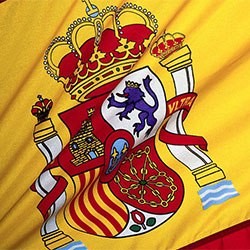First Portuguese iGaming Licenses To Be Issued in June

A couple of years back, Portugal decided to break the lottery and iGaming monopoly enjoyed by Santa Casa da Misericordia (SCdM), and instead follow European Union guidelines and open its market to other international operators located on the continent. Despite this, online gambling is struggling to take off in the country of roughly 10 million people, and while that’s slightly more than the population of New Jersey and much more than the populations of Nevada and Delaware, there simply isn’t enough liquidity for Portuguese poker sites to be successful.
Dealing with Low Liquidity
The main European markets of France, Italy and Spain have already ring-fenced their own respective online poker markets, and dealt with liquidity problems by allowing operators to form networks that pool players from multiple sites together, thus increasing the number of players available to take to the online tables. Portugal, too, initially indicated that it would keep its players separate from those of other jurisdictions, but the country’s gaming regulator, SRIJ, has now backtracked and said that it will permit online poker sites to share liquidity with those of other EU countries. As SRIJ Head of Online Gambling, Manuela Bandeira, has stated:
“International liquidity is important for poker, as it allows small markets to be more competitive. It’s not a simple issue and we need to work more closely with other regulatory bodies from different countries in order to understand how to make it work.”
No Pooling Allowed
The news that Portugal will allow operators to pool Portuguese players with foreign players living in countries where online gamble is regulated should be good news. The rest of the statement the SRIJ made has casts a major shadow over the otherwise positive development, however, as online gambling laws in Portugal will not permit the creation of the poker networks needed to put a pooling scheme into place. In other words, the Portuguese law does not allow for any type of business-to-business gaming licensing.
Another Major Problem for Portugal
The problem with liquidity isn’t likely to be resolved in Portugal any time soon and not just because of the inability for business-to-business licensing. Portugal also has an exceptionally high gambling tax rate that starts at 15 percent and tops out at 30 percent. Most of the biggest names in online gambling like PokerStars, William Hill and Ladbrokes have already issued statements saying that they will not pursue licensing in Portugal under the present exorbitant tax rates. This is a problem for Portugal as at this point it’s only these major operators who have any chance of generating meaningful revenue by mustering enough liquidity to enable a competitive playing environment.
One Saving Grace
The one saving grace for the Portuguese liquidity problem may be a potential liquidity sharing agreement on the horizon. In December, the SRIJ said they were in talks with France, Italy, Spain and the UK to put into place a system where players would be able to play on any site located within those countries.
Further good news was also announced last week, after the French Senate voted in favor of amending its Digital Bill to allow shared liquidity with other EU markets. This would seem to indicate that the aforementioned player sharing pact is now actively being pursued. Furthermore, if Germany eventually manages to make adjustments to its State Treaty on Gambling and joins in a liquidity deal with these other countries, then a single poker market with a population of more 250 million people could be established.
Going back to Portugal, it is not clear whether operators would be able to pool players somehow through such an agreement due to the lack of business-to-business licensing. This is likely to cause problems for such operators as PokerStars, iPoker, Microgaming Poker Network (MPN), and 888Poker. Unless the laws change, one potential option may involve a large operator with a presence in each country launching a single site allowing players from all five countries to play together.










